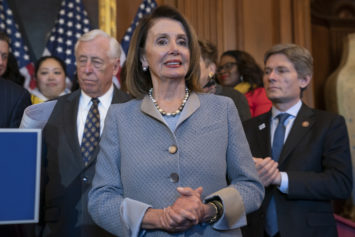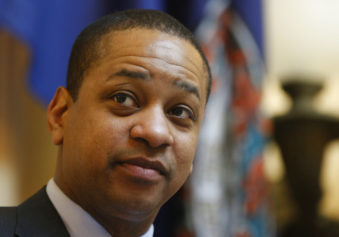
Thirty-nine Democrats joined House Republicans yesterday in passing a bill that would allow individuals who had their substandard insurance plans canceled under Obamacare to have their plans reinstated, even if the plans do not provide all the benefits and consumer protections required by the new health care law.
But the bill has no hope of ever becoming law because President Obama has promised to veto it. And because the president had already promised to give Americans whose plans had been canceled the chance to have their policies reinstated for a year, there’s no indication that lawmakers in the Senate have any interest in taking up the measure.
The bill passed the House by a vote of 261 to 157, with 39 Democrats bucking their party leadership and the White House to vote in favor of the bill. Republicans are taking every opportunity to make the president look as badly as possible on the issue. After he apologized to the American people, they saw an opening to twist the knife.
One after another, lawmakers stood up on the floor of the House and gleefully bashed the White House and Obamacare, using language they will be sure to put in boldface next year in their campaign ads.
“In the last three years,” said Representative Fred Upton, Republican of Michigan and the chief sponsor of the House bill,, “the president personally promised that if people liked their current health care plan, they could keep it ‘no matter what.’ But cancellation notices are now arriving in millions of mailboxes across the country. It’s cancellation today, sticker shock tomorrow.”
Upton, the chairman of the Energy and Commerce Committee, said the proposal offered by the president was inadequate and too late, coming “as the administration’s allies in Congress panicked.”
Democrats, mostly facing tough re-election fights next year in conservative districts, were just as harsh in their attacks.
Representative Nick J. Rahall II, Democrat of West Virginia, who voted for the legislation, said that the White House deserved an “F-minus” for its botched rollout of the Affordable Care Act.
“I’m disgusted about it,” Rahall said. “I think heads should roll downtown. Whoever was responsible or may have known that this was going to occur should no longer be employed.”
Representative Ron Barber, Democrat of Arizona, who also joined Republicans in voting for the bill, called the rollout “a disaster.”
“My constituents are pretty upset,” he said, “and so am I.”
But Rep. Mike Doyle, Democrat of Pennsylvania, called the other side on its hypocrisy.
“Don’t pretend you care about the American people’s health care here,” he said. “You just want to repeal the Affordable Care Act. Democrats are not going to let you do that.”
The White House also got considerable pressure from insurance industry executives, who participated in a meeting with the president where they expressed their concern about the White House reversal on the policy cancellations.
Ever since the law passed, it had been widely known that individuals with substandard plans would see those plans cancelled. When the president repeatedly told Americans they would be able to keep their plans if they liked them, he was talking to the vast majority of Americans who get their insurance through their employers.
But as people on the individual insurance market starting receiving notices that their cut-rate plans were not expansive enough under Obamacare, the president found himself trapped by his own promises.
The president said the meeting with the executives was a “brainstorming” session about how to ensure changes to the health care law go smoothly.
After the meeting, executives from more than a dozen companies said they would work with the administration to protect the financial viability of the new marketplaces, but they wouldn’t offer details,
Karen Ignagni, the president of America’s Health Insurance Plans, a trade group, said it was a “very productive” meeting.
According to the industry executives, the premiums in the new federal and state marketplaces were based on the assumption that younger healthy people who had been enrolled in cheaper plans would move into the new marketplaces. If they are not forced to move, the exchanges will not be able to keep premiums low for everyone and will be filled with older, sicker people, forcing premiums to rise.


